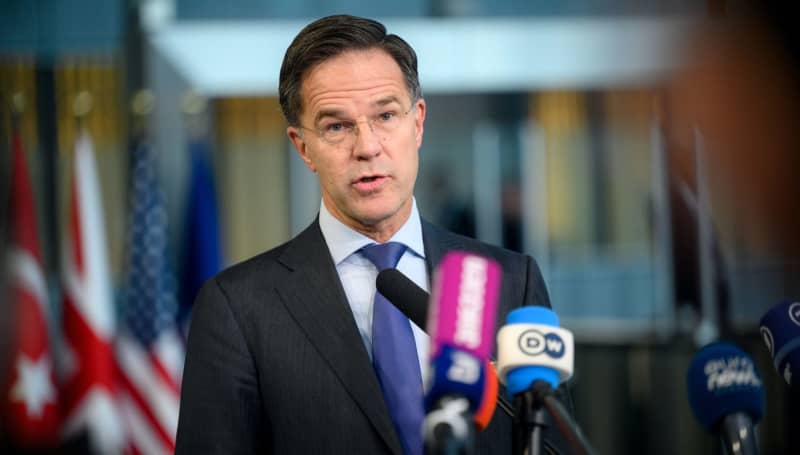In a context marked by escalating tensions, NATO Secretary General Mark Rutte underscored the alliance’s growing concerns over destabilizing actions attributed to Russia and China. During a recent meeting in Brussels, Rutte indicated that these nations are engaged in campaigns of sabotage and cybercrime aimed at undermining NATO’s integrity, necessitating a more integrated intelligence-sharing approach among member states. This strategy is essential to coordinating defenses against threats targeting critical infrastructure. As the foreign ministers convened to address these hybrid tactics, there was a unified acknowledgment of the threat posed by state-sponsored actions from both Russia and China, with officials articulating a need for a robust response to deter future aggressions.
The Czech Foreign Minister, Jan Lipavský, reported troubling statistics that reflect the severity of the situation; in 2024, Europe encountered approximately 500 suspicious incidents, nearly one-fifth of which could be traced back to Russian activities. Lipavský emphasized the imperative for NATO to communicate a clear message to Moscow, signaling that such hostile behaviors are unacceptable and carry consequences. His remarks highlighted the dangers of complacency, as ongoing aggression not only threatens national security but can critically destabilize diplomatic relations within the alliance and beyond. In this fraught environment, members recognized the urgency of a coordinated response.
The conversation increasingly gravitated towards the specific tactics employed by Russia and other adversarial nations, with an emphasis on the perceived increase in willingness on Russia’s part to utilize sabotage that could endanger lives. A senior NATO official expressed grave concerns regarding the alliance’s vulnerability to serious acts of sabotage and cyberattacks, particularly from Moscow. This concern extends to activities from other state actors such as China, Iran, and North Korea, which are actively engaged in cyber operations including malware dissemination. These tactics, driven by espionage interests, could also be weaponized to induce disruption amid escalating geopolitical tensions.
Critical infrastructure emerged as a focal point in discussions, with particular emphasis placed on industrial control systems. The implications of these cyber operations were illustrated by an example of a significant cyberattack on NATO member Albania, which crippled important border control systems and exposed sensitive interior ministry files. This incident was characterized as a likely act orchestrated by Iran, raising alarms about the intricate connections among hostile state actions and their potential ripple effects across NATO nations. Such incidents served as cautionary tales illustrating the need for heightened vigilance and improved security measures across the alliance’s critical infrastructure.
During the deliberations, German Foreign Minister Annalena Baerbock called for intensified efforts to safeguard critical infrastructures, such as undersea cables and pipelines, through enhanced intelligence sharing and proactive patrolling initiatives. Prior to the formal discussions, Baerbock identified the Baltic Sea as an area requiring immediate attention in terms of NATO’s monitoring and cooperative strategies. The mention of disruptions to global positioning systems (GPS) as part of Russian hybrid activities also underscored the multifaceted nature of these threats, which intersect technology with traditional security concerns, providing a stark illustration of how modern warfare’s landscape is evolving.
In conclusion, the ongoing discussions among NATO foreign ministers highlight an urgent call to enhance the alliance’s collective defense mechanisms against an array of hybrid threats. The recognition of the sophisticated nature of state-sponsored actions from Russia and China signifies a crucial turning point for NATO, compelling member states to work collaboratively to protect their critical infrastructures and maintain the integrity of the alliance. As the geopolitical climate continues to shift, the emphasis on intelligence sharing, increased surveillance, and proactive defense strategies will play a pivotal role in shaping NATO’s resilience against current and future threats, ensuring that the alliance remains robust in the face of evolving challenges.

